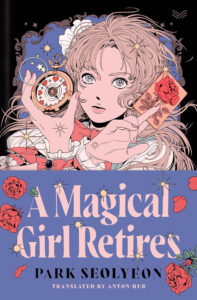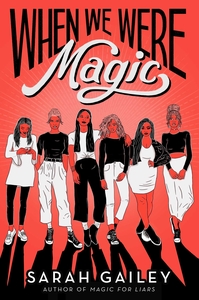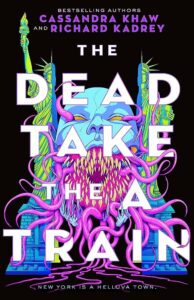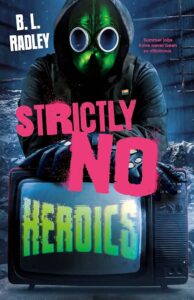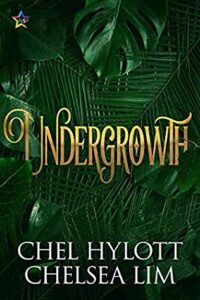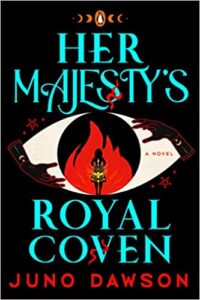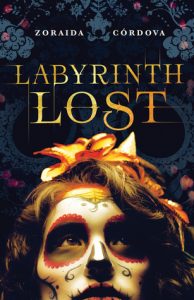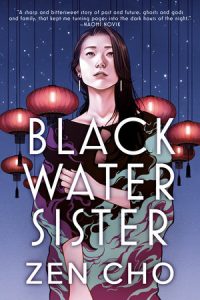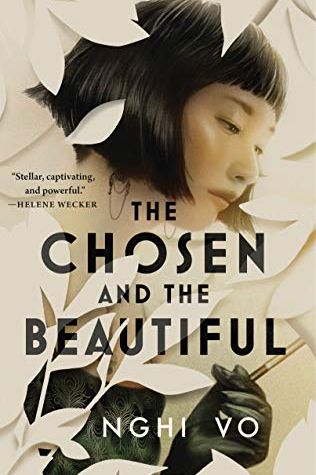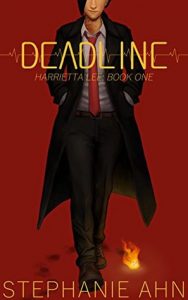Buy this from Bookshop.org to support local bookstores and the Lesbrary!
I am sure you are all familiar with magical girl stories like Sailor Moon, but have you ever heard of a magical girl with credit card debt? In Park Seolyeon’s A Magical Girl Retires (translated by Anton Hur), our unnamed protagonist is 29, has lost her job during the pandemic, and is now drowning in credit card debt, with no way out that she can see. She decides to jump off Seoul’s Mapo Bridge, but is interrupted by a girl all dressed in white—Ah Roa, the magical girl of clairvoyance. Ah Roa explains to her that in this world where magical girls join a trade union and protect others, the protagonist may be the most important magical girl of all time. But as they work together to unlock her powers, the protagonist’s problems don’t go away: she still struggles with low self-esteem, has her debt, and doesn’t know how to battle the most terrifying threat the magical girls will ever face: global climate change.
A Magical Girl Retires is a fantastic original story that pays homage to the fandom of Sailor Moon while blending the realism of today’s society. The protagonist may be unnamed, but the way that Park outlines her various woes and thought processes makes her anything but a stranger. The conflicts of being in credit card debt and struggling to find a job that will pay the bills is an all-too common one, especially post-pandemic, and I admire the author for not only taking on that challenge, but thriving in showing how it can seem almost impossible to get out of it without losing all hope. At the same, the protagonist maintains a sort of wonder about the task of becoming a magical girl and unlocking her powers, which makes it a joy to read this book.
Of course, I have to mention the sapphic subplot of A Magical Girl Retires! Ah Roa, the previously mentioned magical girl of clairvoyance, deems the protagonist as being the most important person for her to have ever found, and while the two never establish an official romantic relationship, the vibes are still here. The protagonist wonders what Ah Roa is doing and what she thought of her, and Ah Roa does at one point mention how she never wants to leave the protagonist.
A Magical Girl Retires is translated by Anton Hur from the original Korean and clocks in at a short 176 pages. I did listen to it through the e-audiobook narrated by Shannon Tyo, and it was an enchanting experience. I have seen mention of the illustrations in various reviews and while I haven’t seen them myself, if they are anything like the narration style of Tyo or the lyrical prose of Park, then I am sure they are lovely. If you are the type of reader to enjoy endnotes, then you will love Hur’s endnote on why he translated the work and the joy he found in doing so. Trigger warnings include domestic violence, idealization of suicide, financial trauma, terrorism, and murder.
If you enjoy urban fantasy, magical girl transformation sequences, and finding your way in this unpredictable world, you can order your copy of A Magical Girl Retires through Bookshop, your local indie bookstore, or your library.

